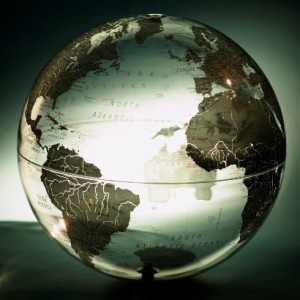Doing Business in Africa: How Culture Changes How We Work Together
If we want to break the dependency cycle, we must better understand the cultural context where we want to do business and ministry.
Abstract
Failure to take insufficient cognisance of local contexts leads to outsiders’ encouraging business in Africa resulting in a trail of dependency. Pertinent differences between African and Western contexts addressed in this article include; understandings of magic, orientation to feasts, recognition of mystical forces, language background, family arrangements, understanding of money, philosophy; dualism vs. monism, the penetration of ‘corruption’, awe of Whites, and more. Such differences are best compensated through a process of immersion in the foreign context. This can be achieved if a foreigner determines to confine themselves to local resources and languages in their operations.
Note: in his references to Africa and Africans the author draws on personal experience. Clearly, not all of Africa and not all Africans are the same.
Introduction
 This article shows how worldview differences between Africa and ‘the West’ impact on business practices. Their impact is often such as to result in efforts at instigating and guiding business by the West leaving a trail of dependency. Extant differences are very complex in their practical outcome. Because of this complexity, it is not possible to design a strategy for dealing with them from a distance. The wise businessperson wanting to avoid creating dependency will plan and implement their activities in such a way as to remain vulnerable to and thus able to adjust to contextual surprises. A crucial way of doing this is to confine one’s business intervention in a foreign context to the use of local languages and local resources. Such practice is known as vulnerable mission. This is not a guaranteed strategy, but a means of maintaining sensitivity to local stresses. Following such strategy can result in business success being rooted in the local market. Such a business can continue without outside subsidy or control.
This article shows how worldview differences between Africa and ‘the West’ impact on business practices. Their impact is often such as to result in efforts at instigating and guiding business by the West leaving a trail of dependency. Extant differences are very complex in their practical outcome. Because of this complexity, it is not possible to design a strategy for dealing with them from a distance. The wise businessperson wanting to avoid creating dependency will plan and implement their activities in such a way as to remain vulnerable to and thus able to adjust to contextual surprises. A crucial way of doing this is to confine one’s business intervention in a foreign context to the use of local languages and local resources. Such practice is known as vulnerable mission. This is not a guaranteed strategy, but a means of maintaining sensitivity to local stresses. Following such strategy can result in business success being rooted in the local market. Such a business can continue without outside subsidy or control.
Differences
Westerners want to believe that African people are no different from ‘us’. The prospect of finding differences between African and Western people’s cultures can be terrifying. That is why racism is so broadly condemned in the West. Yet in fact there must be differences, and those differences are likely to affect the functioning of business. Some differences in socially overt behaviour that affect how someone engages in business arise from deep variations in ontological understanding. For example, very unlike Western dualism that distinguishes material from spiritual forces (classically by means of science) in African monism things and even being itself are defined by the ‘spiritual’ forces inherent in them (Tempels 1959:51).
“Once someone has prayed for you, say you are healed” the preacher said to this congregation. “You may feel no different, and you may notice no changes, but there is no point in being prayed for and then denying the power of prayer” he explained. This rather radically counter-scientific approach to healing is widespread in parts of Africa familiar to me. “Better to ask than to say nothing, because you have nothing to lose by asking and might just get something” said an African person to me, explaining part of the reason why African people are quick to ask for assistance from foreign visitors. Critiquing the prosperity gospel can be countered by some African people’s saying “but we believe God can indeed bless some people with riches.” It is hard for a Western Christian to know how to respond to such a comment; does one want to deny people blessing?
Category: In Depth, Summer 2015


